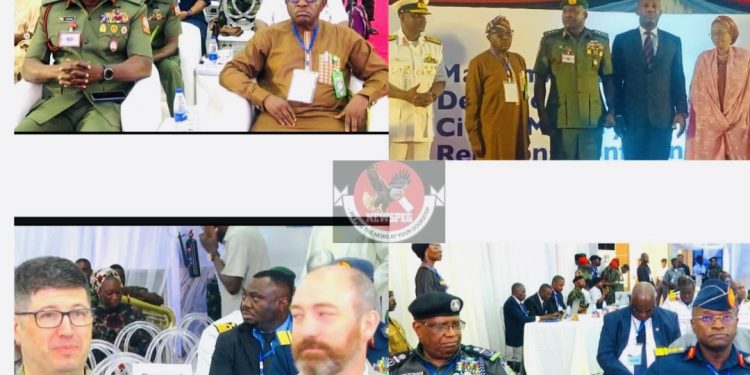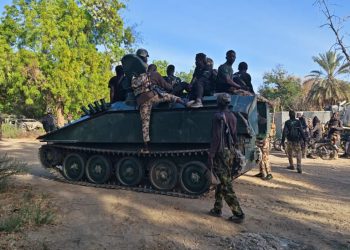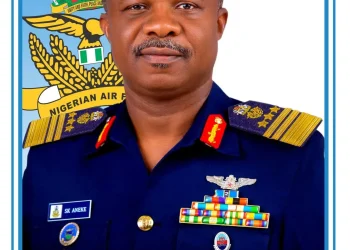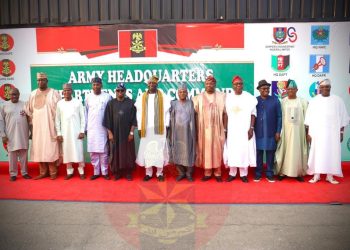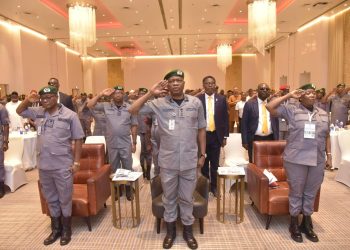By Nkechi Eze
In a landmark call for unity, national healing, and security sector reform, the Chief of Defence Staff (CDS), General Christopher Musa, has urged Nigerians to rethink their perception of the Armed Forces not as a feared or occupying force, but as partners in peace and national development.
Speaking on Thursday at the Maiden Defence Headquarters Civil-Military Relations Conference 2025 in Abuja, General Musa made a passionate appeal for a national reorientation that fosters trust, mutual respect, and collaboration between the military and civilians.
The conference, themed “Winning Hearts and Minds: Non-Kinetic Approaches to National Security,” brought together military leaders, government officials, civil society stakeholders, media practitioners, and development partners for a robust dialogue on improving civil-military relations and shaping a new era of people-focused national security.
General Musa acknowledged that past events, systemic gaps, and negative experiences have created deep-rooted suspicion and fear among civilians toward the military. However, he called for this narrative to be rewritten with intentional efforts from both the Armed Forces and the public.
“We must change the narrative,” he declared. “The Armed Forces of Nigeria should be seen as allies in development, as protectors of peace, not instruments of fear. Security is not the exclusive responsibility of the military, it is a collective national duty.”
He emphasized the importance of building trust through respect for human rights, empathy, and consistent community engagement. According to the CDS, Nigeria’s long-term peace and stability can only be secured through inclusive and non-kinetic approaches such as dialogue, psychological operations, civic outreach, and grassroots collaboration.
“The road to national cohesion cannot be paved by bullets alone,” he said. “It must be built on the solid foundation of shared purpose, understanding, and mutual respect.”
General Musa expressed optimism that the conference would produce actionable strategies that will institutionalize non-combat solutions in military operations and inspire a security framework truly rooted in people’s needs and participation.
Also speaking at the event, the Minister of Information and National Orientation represented by Dr. Opolo Nnam echoed General Musa’s call, urging citizens to stop viewing the Armed Forces as a force of aggression or fear, but rather as essential allies in the collective pursuit of peace, security, and prosperity.
“The reality we face today is uncomfortable but undeniable,” the Minister stated. “A trust deficit exists between the Armed Forces and many segments of the Nigerian population. This must change.”
He noted that while this perception may be shaped by historical grievances, misinformation, or isolated incidents, it remains a threat to national unity and undermines public cooperation. He urged the media to play a more constructive role in reshaping public opinion and amplifying the military’s contributions to peacebuilding and humanitarian efforts.
“Our Armed Forces are not a foreign body, they are a national institution, created by the Nigerian people, for the protection and progress of all Nigerians,” he said. “They must be seen not as distant enforcers, but as a vital part of our national family.”
In his welcome remarks, the Chief of Defence Civil-Military Affairs, Rear Admiral Olusanya Bankole, stressed the urgent need to close the civil-military trust gap. He acknowledged that the military is often seen as “brutal, offensive, and distant from the people,” but said this perception can be corrected through openness, humility, and sincere engagement.
“For sustainable peace to take root, the Armed Forces must engage not just with firepower, but with empathy, transparency, and genuine partnership,” Rear Admiral Bankole said.
He called for community-based engagements, joint civic projects, and proactive information sharing to rebuild trust and solidify the military’s place as a people-serving institution.
Organisers of the conference said the event is part of a broader effort by the Defence Headquarters to adopt holistic security strategies that prioritize human security, local engagement, and social intelligence tools known to be effective in countering radicalization, promoting reintegration, and strengthening resilience against conflict.
As Nigeria grapples with complex security challenges across multiple regions, the message from the conference was clear: national peace cannot be achieved through force alone. True security lies in winning hearts and minds, in forging meaningful partnerships, and in restoring public trust in the Armed Forces as a force for good.
The event ended with a strong commitment from all stakeholders military, government, civil society, and media to work together in shaping a more inclusive, transparent, and people-centered approach to national security.


